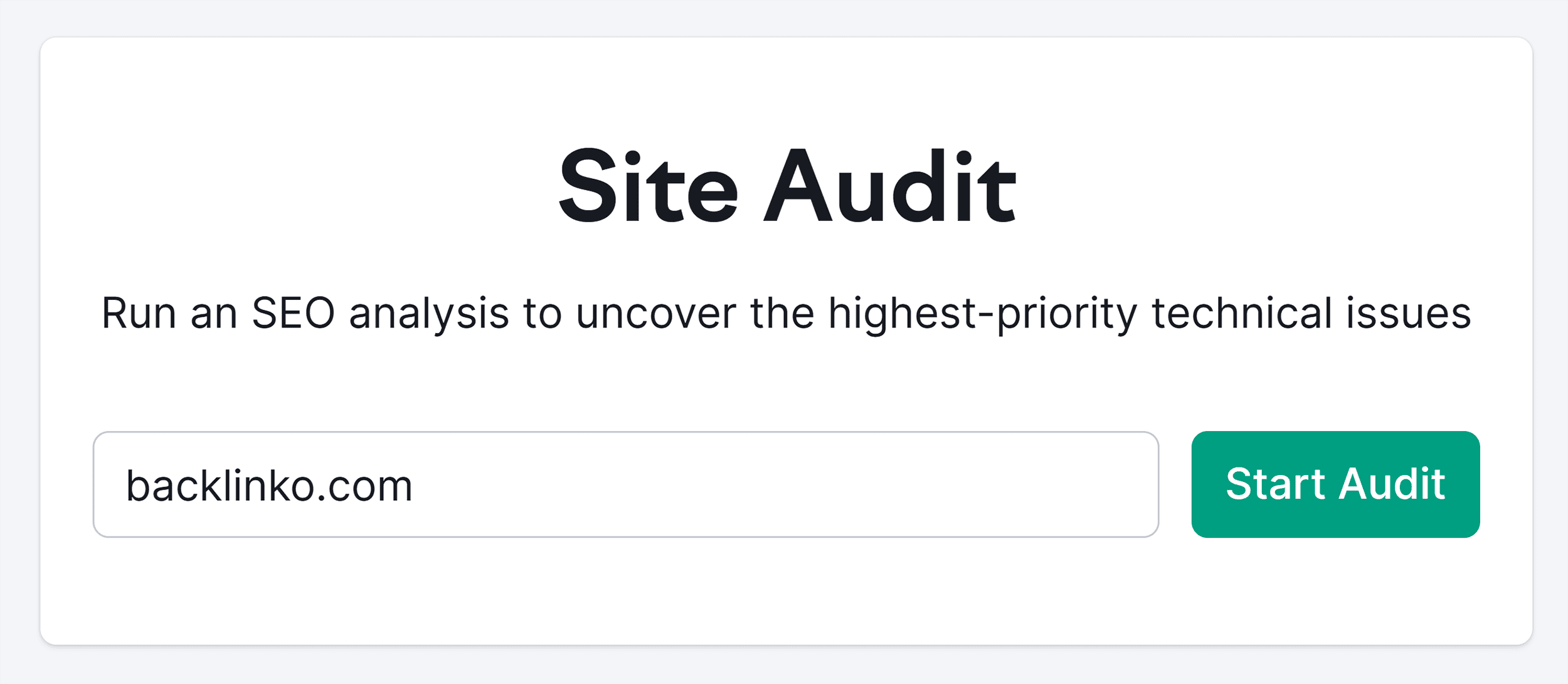A canonical URL is the archetypal oregon superior mentation of a webpage. If your tract hosts aggregate pages with akin oregon identical content, the canonical URL is the 1 you privation hunt engines to index.
While hunt engines yet find which URL they see canonical, you tin power this determination by adding the “rel=canonical” nexus constituent successful your webpage’s HTML code.
Here’s however Atlassian adds a canonical nexus tag for the Jira landing page connected their site:

Let’s interruption that down:
- The rel=”canonical” nexus constituent tells hunt engines that the nexus that follows is the preferred mentation of the page
- The href property past specifies the URL considered to beryllium the archetypal page
How Do Canonical URLs Affect SEO?
Canonical URLs assistance code duplicate content issues connected your website.
When aggregate URLs pb to pages with the aforesaid content, hunt engines whitethorn person trouble selecting the close leafage to show successful hunt results.
But erstwhile you acceptable a canonical URL, you intelligibly bespeak which leafage you privation indexed and ranked. Which helps hunt engines marque a decision.
How to Implement Canonical URLs
Even the largest websites tin gaffe up erstwhile it comes to implementing canonical URLs correctly.
Here’s what you should bash to marque definite you instrumentality them properly.
1. Audit Your Website
Start by auditing your tract for duplicate content—which tin hap successful aggregate ways, including:
- Publishing identical contented connected antithetic URLs
- Creating aggregate leafage variations for A/B testing
- Generating URLs with tracking parameters
You tin usage Semrush’s Site Audit; instrumentality to find and code duplicate contented issues connected your website.
Here’s how:
Enter your website URL and click “Start Audit.”

The instrumentality volition past analyse your full website’s operation and content.
Once the audit is complete, navigate to the “Issues” report.

Filter the database by typing “duplicate” successful the hunt bar.

Next, click the linked substance successful each section.

This volition instrumentality you to a database of pages that person a circumstantial issue. In this case, duplicate content.

Click connected the “Why and however to hole it” nexus to larn much astir the contented and however to code it.

To cheque for canonicalization issues, click connected the “Statistics” tab and person a look astatine the “Canonicalization” section.

By clicking connected the linked portion of the section, you’ll capable to reappraisal pages with canonicalization issues specified as:
- Multiple canonical URLs
- Broken canonical links
- Missing canonical tags

2. Choose the Canonical Version
Once you’ve identified duplicate pages and canonical issues, prime the mentation you’d similar hunt engines to scale and amusement successful hunt results.
Sometimes, the champion prime volition beryllium clear. Other times, it volition necessitate cautious consideration.
Follow these guidelines to marque the close prime much easily:
- Choose the astir user-friendly URL
- The astir informative leafage should typically beryllium the canonical version
- Prioritize the URL with the astir internal links
- If 1 mentation has consistently outperformed others successful hunt rankings, see making that the canonical URL
- Avoid URLs with unnecessary parameters, specified arsenic league IDs and tracking codes
3. Add Canonical URLs
For each radical of duplicate oregon akin pages, adhd a <link rel=”canonical”> property to specify your preferred version.
You typically adhd the canonical nexus constituent successful the <head> conception of a page.
Side note: If you omit to adhd a rel=”canonical” nexus constituent successful the <head> section, an alternate is to designate your canonical pages within your sitemap. But this isn’t arsenic beardown a awesome to Google arsenic utilizing the rel=”canonical” nexus constituent straight connected the page.
Here’s what this looks similar successful practice, utilizing Airtable arsenic an example.

The disposable homepage URL is:
https://www.airtable.com/v2But this isn’t the canonical URL they privation indexed. It’s actually:
https://www.airtable.com/Here’s however they acceptable up the canonical URL successful the HTML codification connected some versions of the page.

This means the archetypal mentation of the leafage (“https://www.airtable.com/”) includes a canonical nexus pointing to itself.
The variant (“https://www.airtable.com/v2”) uses a canonical URL pointing backmost to the archetypal version.
And this helps Google recognize which leafage to prioritize, arsenic seen successful the screenshot below.

Best Practices for Canonical URLs
Let’s instrumentality a person look astatine the champion practices for adding canonical URLs to your website.
Some of these whitethorn look similar insignificant details, but they tin impact however hunt engines scale and fertile your content.
1. Use Absolute URLs
Always usage the afloat URL, including the “https://” prefix.

Do this:
<link rel="canonical" href="https://backlinko.com/hub/seo/seo-keywords">Not this:
<link rel="canonical" href="/hub/seo/seo-keywords">Using implicit URLs eliminates immoderate imaginable disorder for hunt engines.
Side note: HTML standards let utilizing comparative URLs. But implicit URLs guarantee that determination is nary country for misinterpretation.
2. Be Consistent
Before you acceptable up a canonical URL, marque definite the corresponding mentation exists connected your website.
Also, double-check for immoderate typos.
And marque definite the URLs that person been deleted oregon redirected are promptly updated successful the canonical nexus element.
3. Enforce a Self-Referencing Canonical URL
Use a canonical nexus constituent that points to the preferred page’s URL successful the HTML codification of the preferred leafage itself.
This reinforces to hunt engines that the existent leafage is the 1 they should prioritize successful hunt results.
Even if a leafage doesn’t person duplicates, utilizing a self-referencing nexus tin forestall issues caused by incorrect URL parameters.

4. Designate One Canonical Link Element Per Page
When aggregate canonical URLs are specified, hunt motor crawlers whitethorn find it hard to find your preferred mentation of the content.
This tin effect successful indexing and ranking issues.
Common Mistakes to Avoid When Implementing Canonical URLs
Make definite to debar these mistakes erstwhile implementing canonical URLs.
1. Adding Canonical Tags successful the Wrong Place
Place the rel=”canonical” nexus constituent successful the <head> conception of your HTML document. Not successful the <body>.
Adding it extracurricular the <head> tags violates HTML standards and mightiness origin browsers and hunt engines to misinterpret oregon incorrectly render your page.
2. Using Multiple Canonical Tags
Having aggregate canonical URLs tin harm your hunt motor rankings.
Why? Search engines, similar Google, are apt to ignore each the conflicting canonical URLs you’ve added—which defeats the intent of utilizing canonical tags.
3. Ignoring Near Duplicates
Near-duplicate pages look astir identical but person tiny differences—like varied merchandise options oregon flimsy connection variations.

Here’s however to grip them:
- Decide if near-duplicate pages should constituent to a preferred mentation utilizing a canonical nexus element
- If some pages adhd worth for users, see changing the contented connected each leafage to marque them substantially different
4. Pointing Canonical Tags to Redirected URLs
Make definite the canonical URL nexus constituent points to the final, preferred URL directly. And not to URLs that redirect.
This usually happens during tract restructurings, migrations, oregon consolidations erstwhile canonical nexus elements aren’t updated to travel the caller URL structure.
Pointing a canonical tag to redirecting URLs complicates the occupation for hunt engines due to the fact that it makes them spell to a URL, lone to get redirected again.
To forestall this, regularly verify that your canonical nexus elements bespeak the astir current, nonstop URLs.
5. Canonicalizing Paginated Pages to the Root Page
Avoid mounting each pages successful a bid to canonicalize backmost to the series’ archetypal page—as this could origin hunt engines to disregard the contented connected aboriginal pages.
Instead, fto each leafage successful a pagination bid basal independently by utilizing a canonical nexus constituent that points to its ain URL.
For example:
If your ecommerce tract features merchandise categories crossed aggregate pages similar this:
- Page 1: www.yourwebsite.com/category?page=1
- Page 2: www.yourwebsite.com/category?page=2
- and truthful on
Make definite to delegate a canonical nexus constituent to each page, directing backmost to its circumstantial URL:
- For Page 1: <link rel=”canonical” href=”www.yourwebsite.com/category?page=1″/>
- For Page 2: <link rel=”canonical” href=”www.yourwebsite.com/category?page=2″/>
Advanced Canonicalization Techniques
Choosing the close canonical URL tin sometimes contiguous challenges.
Below, you’ll find scenarios wherever this mightiness beryllium the case. Plus, applicable proposal connected however to navigate these situations.
Redirects and Canonical URLs
Redirects and canonical tags play complementary roles successful handling duplicate content.
But first, what’s the difference?
- Redirects automatically instrumentality some users and hunt engines to the close page. The result? A creaseless idiosyncratic acquisition and close hunt motor indexing.
- Canonical nexus elements enactment arsenic suggestions to hunt engines astir which URL to index—without changing the idiosyncratic experience. They enactment arsenic behind-the-scenes instructions for hunt engines.
As you tin see, they some service unsocial purposes. But erstwhile you usage them unneurotic correctly, you amended the idiosyncratic acquisition and marque it easier for hunt engines to recognize your website.
When to Use Each
The prime betwixt utilizing canonical URLs, redirects, oregon a operation of some depends connected a fewer factors:
- Type of duplicate content: When duplicate contented serves the users oregon is intentionally created, usage a canonical nexus element. Examples see URLs for merchandise variations oregon URLs with UTM parameters for tracking selling campaigns. By doing so, you awesome to hunt engines your preferred contented mentation portion keeping idiosyncratic entree to different versions.
- Desired URL structure: For large tract overhauls, redirects (especially 301s for imperishable changes) are necessary. This makes definite that users and hunt engines are automatically redirected from aged URLs to caller ones. There’s usually nary request to adhd a canonical nexus constituent to these redirected pages.
- Your SEO goals: Redirects are mostly much effectual for consolidating nexus equity. Canonical tags let users to entree aggregate versions of a leafage portion focusing hunt motor attraction connected 1 version.
Let’s marque this clearer with a applicable example.
Imagine you tally an ecommerce tract that’s had aggregate selling campaigns, starring to respective URLs for the aforesaid merchandise page. This mightiness effect successful immoderate URLs that are nary longer useful. You mightiness person the pursuing URLs connected your site:
The archetypal merchandise page:
www.yourwebsite.com/productA merchandise leafage circumstantial to the campaign:
www.yourwebsite.com/spring-sale/productA merchandise leafage URL with UTMs:
www.yourwebsite.com/spring-sale/product?utm_source=newsletter&utm_medium=email&utm_campaign=spring_saleIn this situation, here’s what we recommend:
Apply a canonical tag connected each versions of the merchandise page, pointing to the archetypal URL.
After the run ends, usage redirects to funnel visitors from campaign-specific URLs to the archetypal merchandise leafage to consolidate nexus equity. A canonical tag is mostly not indispensable successful this case.
For URLs with tracking codes, determine based connected your tracking needs—either redirect them oregon permission them arsenic is. Make definite the leafage has a canonical nexus that points to the basic, non-parameter mentation of the URL.
Canonical URLs for Ecommerce Sites
Ecommerce sites often look duplicate contented issues due to the fact that aggregate URLs tin beryllium generated for the aforesaid product. Especially erstwhile products travel successful antithetic colors and sizes oregon are viewed done assorted filters.
Here’s however to negociate this with a absorption connected canonical URLs, utilizing the Hugo Boss website arsenic an example.
Hugo Boss’s merchandise pages make antithetic URLs for antithetic colors of the aforesaid product.

In this example, the URL for the bluish merchandise variant is:
https://www.hugoboss.com/uk/micro-structured-crew-neck-sweater-in-cotton/hbeu50506022_479.htmlWhile the URL for the acheronian reddish variant is:
https://www.hugoboss.com/uk/micro-structured-crew-neck-sweater-in-cotton/hbeu50506022_248.htmlSo, what does the website do?
It designates the URL of the archetypal colour enactment displayed connected the merchandise leafage arsenic the canonical URL.

For astir ecommerce sites, the champion mode to negociate dynamically generated URLs similar this is to usage built-in features oregon SEO plugins that facilitate canonicalization.
With Shopify, for example, you tin usage the Canonical Tag URL Wizard app.
Canonical URLs and Multilingual Sites
For multilingual sites, brace hreflang attributes with canonical nexus elements.
Here’s however to attack this:
For each connection mentation of your content, usage hreflang attributes to specify the people assemblage by connection and region.
At the aforesaid time, acceptable a canonical URL for each leafage to pass hunt engines astir the preferred mentation for that peculiar connection setup.
Take Shopify’s execution arsenic an example:
Here’s the canonical property connected the English mentation of their site.

Notice the canonical property links to:
"https://www.shopify.com/pricing"And here’s what that looks similar connected the French mentation of the aforesaid leafage connected their site:

See the canonical attribute?
It links to the French mentation of the page:
“https://www.shopify.com/fr/tarifs”Canonicalization Across Subdomains
When your website uses subdomains to signifier contented oregon big different connection versions, usage canonical URLs crossed these subdomains.
Semrush, for example, has subdomains for antithetic connection versions.
Let’s look astatine however they usage canonical URLs.
On its main domain, “https://www.semrush.com,” they add:
<link rel="canonical" href="https://www.semrush.com/">
And connected the French mentation of their tract (https://fr.semrush.com/) they use:
<link rel="canonical" href="https://fr.semrush.com/">
This attack makes definite hunt engines admit the superior contented root crossed assorted subdomains.
Canonicalization Across Different Domains
For contented syndicated crossed different sites, the usage of canonical URLs has shifted.
Google present advises against utilizing rel=”canonical” for syndicated content.
Instead, it recommends that partners instrumentality the “noindex” meta tag to forestall syndicated contented pages from being indexed.
Canonicalization successful AMP Pages
For websites with Accelerated Mobile Pages (AMP)—which are optimized versions of webpages for speedy loading connected mobile devices—apply canonical nexus elements to negociate content.
Here’s how:
- AMP to non-AMP: Put a canonical nexus constituent connected each AMP leafage that points to its matching non-AMP (regular HTML) page. This tells hunt engines the non-AMP leafage is the main version.
- Non-AMP self-reference: Similarly, guarantee that the non-AMP HTML mentation of a leafage has a canonical URL that points to itself
- AMP-only pages: In situations wherever an AMP leafage doesn’t person a corresponding HTML version, the canonical tag should constituent backmost to the AMP leafage itself
Go Beyond Canonical URL Optimization for Better Rankings
Using canonical tags helps hunt engines place which mentation of a leafage to scale and rank.
But canonicalization issues are conscionable 1 of the problems that mightiness beryllium holding backmost your website from achieving higher hunt motor rankings.
Check retired our usher to technical SEO to larn however to guarantee your website is escaped of method issues that mightiness beryllium hurting your rankings.
The station What Are Canonical URLs: An In-Depth Guide for SEOs appeared archetypal connected Backlinko.




